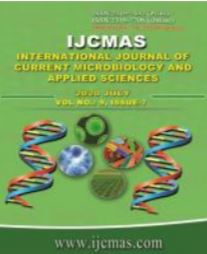


 National Academy of Agricultural Sciences (NAAS)
National Academy of Agricultural Sciences (NAAS)

|
PRINT ISSN : 2319-7692
Online ISSN : 2319-7706 Issues : 12 per year Publisher : Excellent Publishers Email : editorijcmas@gmail.com / submit@ijcmas.com Editor-in-chief: Dr.M.Prakash Index Copernicus ICV 2018: 95.39 NAAS RATING 2020: 5.38 |
Parasites have evolved to manipulate the behavior of the host species, in which they dwell for their food and living. Since, most of the invertebrates comes under class Insecta, the chance of parasitization is always higher. In most cases, the manipulation occurs by influencing the nervous system of insects. The upcoming biological study, dealing with the manipulation of nervous system of insects by the parasites is neuroparasitology. From microscopic viruses to macroscopic worms, heterogeneity of parasites have evolved to become parasites (uniquely, parasitic wasps). It is striking that the manipulation spotted doesn’t require direct entry into the brain and can occur even when the parasite is present external to the body or even at a distance from the host. The spatial view of manipulation would provide an integrated approach to investigate such interactions. Incorporation of different approaches from basic natural history to improved imaging techniques, omics and experiments will come up with new aspects in neuroparasitology. It is also recommended that for researchers interested in impending mechanism of insect behaviors, studies of parasites that have evolved to manipulate such behavior is of an important value in future to ascertain the host parasite interaction.
 |
 |
 |
 |
 |